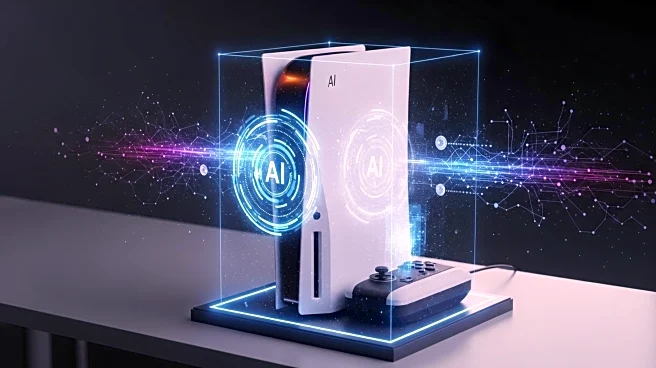What is the story about?
What's Happening?
A survey by the Computer Entertainment Supplier’s Association (CESA) reveals that over half of Japanese game companies are incorporating AI into their development processes. Companies like Level-5 and Capcom are using AI for tasks such as visual asset generation, story creation, and programming assistance. The adoption of AI in game development is driven by its potential to streamline workflows and enhance creativity. However, the use of AI to replace human artists remains controversial, with some companies, like Nintendo, opting to avoid generative AI due to copyright concerns.
Why It's Important?
The integration of AI in game development represents a significant shift in the industry, offering the potential to accelerate production and reduce costs. By automating repetitive tasks, AI allows developers to focus on more creative aspects of game design. This trend could lead to more innovative and diverse gaming experiences. However, the controversy surrounding AI's role in replacing human creativity highlights the need for careful consideration of ethical and legal implications. The industry's approach to AI will likely influence future developments and set precedents for other creative sectors.
Beyond the Headlines
The use of AI in game development raises broader questions about the balance between technology and human creativity. As AI becomes more prevalent, there is a need to ensure that it complements rather than replaces human input. This requires a focus on responsible AI adoption, with an emphasis on protecting intellectual property and fostering collaboration between humans and machines. The industry's response to these challenges will shape the future of game development and potentially influence other creative fields.















